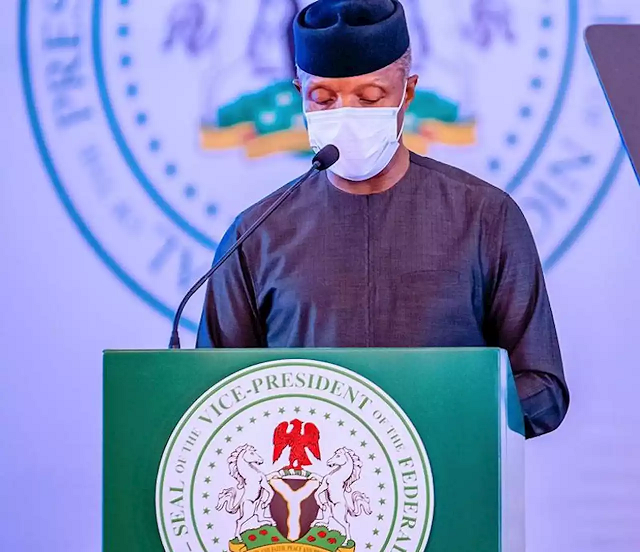Vice President Yemi Osinbajo’s spokesman Laolu Akande, has stated that his principal did not call for the devaluation of the Naira.
Osibajo during the midterm review of President Muhammadu Buhari’s second term in office, office, which was held on Monday called on the Central Bank of Nigeria (CBN) to allow the Naira to reflect the realities of the market.
He said the exchange rate is artificially low and discouraging investors from bringing foreign exchange into Nigeria.
Presently, the naira exchanges at N411 to $1 and N570/$1 at the parallel market.
Many see the parallel market exchange rate as a reflection of its true value.
But in a statement on Tuesday, Akande stated that Osinbajo’s comment was wrongly mischaracterized as a call for devaluation.
He noted that Osinbajo was calling for a forex policy that will address arbitrage and corruption, thereby offering customers cheaper dollars.
READ ALSO: Osinbajo Tells CBN To Allow Market Forces Determine Exchange Rate
“Our attention has been drawn to statements and reports in the media mis-characterizing as a call for devaluation, the view of Vice President Yemi Osinbajo, SAN that the Naira exchange rate was being kept artificially low,” the statement reads.
“Prof. Osinbajo is not calling for the devaluation of the Naira. He has at all times argued against a willy-nilly devaluation of the Naira.
“For context, the Vice-President’s point was that currently, the Naira exchange rate benefits only those who are able to obtain the dollar at N410, some of who simply turn round and sell to the parallel market at N570.
“It is stopping this huge arbitrage of over N160 per dollar that the Vice-President was talking about. Such a massive difference discourages doing proper business, when selling the dollar can bring in 40% profit!
“This was why the Vice-President called for measures that would increase the supply of foreign exchange in the market rather than simply managing demand, which opens up irresistible opportunities for arbitrage and corruption.
“It is a well-known fact that foreign investors and exporters have been complaining that they could not bring foreign exchange in at N410 and then have to purchase foreign exchange in the parallel market at N570 to meet their various needs on account of unavailability of foreign exchange.
“Only a more market reflective exchange rate would ameliorate this. With an increase in the supply of dollars, the rates will drop and the value of the naira will improve.”
According to Akande, the real issue confronting the economy on this matter is how to improve the supply of foreign exchange.
He, however, said the problem would not be solved if mechanisms like the Importers and Exporters (I&E) forex window don’t work.
“If we allow this market mechanism to work as intended, we will find that the naira will appreciate against the dollar as we restore confidence in the system,” he added.











